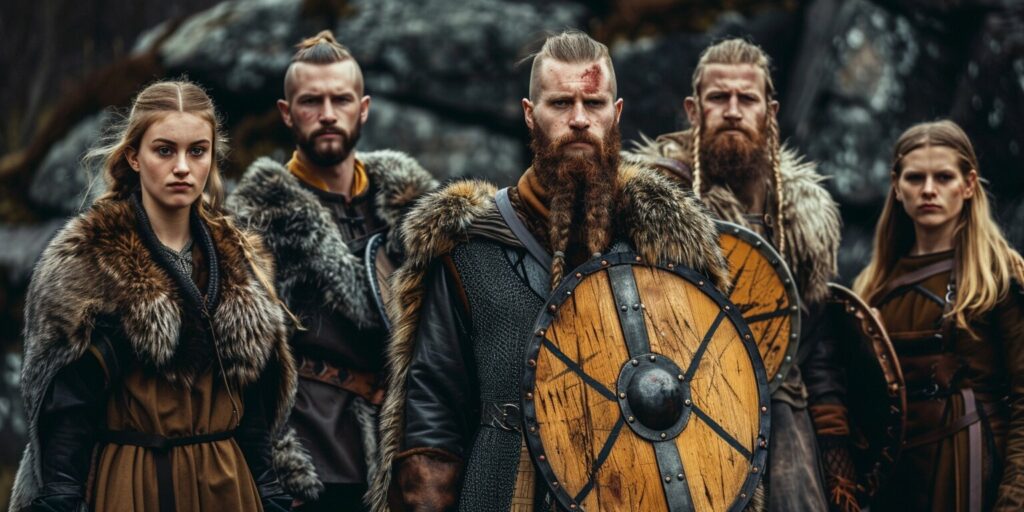Blog
Reflections of Viking Society in Modern Academia
Viking society has always fascinated scholars and fans. Its influence on different areas of study shows how important it still is today. Whether you’re looking at history, literature, archaeology, or education, you can see the Vikings’ lasting impact.
This article looks at how Viking society still influences academics today and uncovers the many ways the past connects with the present. If you’re inspired by this topic for your next reflection essay, make sure you understand what is a reflection paper before diving in!
Understanding Viking Society: A Historical Overview
Before delving into the influence of Viking society on modern academia, it is essential to have a comprehensive understanding of the key characteristics of Viking society itself. The Vikings, known for their seafaring prowess, were a warrior people from the late 8th to the 11th century. They hailed from the Scandinavian region and exerted their influence across vast territories, leaving an indelible mark on history.
Key Characteristics of Viking Society
The Vikings were a complex society with a unique set of values and customs. Central to their identity was the concept of honor and glory in battle. Warriors were highly respected, and their exploits were commemorated in sagas, a form of epic storytelling. Equality between men and women was more prevalent in Viking society compared to other contemporary cultures. Additionally, they had a well-structured legal system and a thriving trade network, which fueled their adventurous spirit.
The Role of Vikings in History
Viking society played a crucial role in shaping the history of Europe. Their expeditions across the seas not only resulted in plunder and conquest but also created lasting cultural exchanges. The Vikings established trade routes that spanned vast distances, connecting different civilizations and facilitating the flow of ideas and goods. Their impact on the development of medieval Europe continues to be studied by historians, seeking to understand the dynamics of power, commerce, and cultural exchange in this transformative period.
The Influence of Viking Society on Modern Academia
Even though more than a thousand years have passed since the time of the Vikings, their influence still strongly affects many academic fields. Literature, philosophy, archaeology, and anthropology have all been shaped by what we’ve learned about Viking culture and history.
Viking stories have fascinated people for centuries, from classics like Beowulf to modern tales like The Lord of the Rings. These stories aren’t just for entertainment—they also give us a window into Viking beliefs and values. Viking philosophy, which focuses on individualism and honor, still inspires thinkers today who are trying to understand what it means to be human and how we should act.
The study of Viking society has also greatly helped archaeology and anthropology. Digging up Viking burial sites and settlements has given us a treasure trove of artifacts. These objects, like weapons, jewelry, and everyday tools, tell us a lot about how the Vikings lived. By carefully studying these artifacts, experts can piece together a picture of Viking society and how it fits into the broader history of the time.
The Relevance of Viking Society in Contemporary Research
While much has been studied and written about Viking society, contemporary researchers are constantly uncovering new insights and perspectives. Current trends in Viking studies reflect a dynamic and evolving field that continues to captivate scholars.
Current Trends in Viking Studies
Advancements in archaeology and the application of interdisciplinary approaches have brought new dimensions to Viking studies. Researchers are utilizing cutting-edge scientific techniques to analyze artifacts, DNA, and historical texts, enabling them to piece together a more comprehensive picture of Viking society. Additionally, the incorporation of diverse perspectives, such as gender studies and postcolonial theories, has fostered a deeper understanding of the complexities of Viking culture and its impact on various marginalized groups.
Future Directions for Viking Research in Academia
The future of Viking research in academia is filled with exciting possibilities. Scholars are increasingly exploring digital humanities, using technology to enhance the study and dissemination of Viking history and culture. Virtual reality simulations and interactive databases allow researchers and the public to engage with Viking artifacts and historical reconstructions. As technology continues to advance, new avenues for research and communication will undoubtedly emerge, further enriching our understanding of Viking society.
Debunking Myths: The True Picture of Viking Society
Even with all the knowledge we’ve gathered, misconceptions about Viking society still linger. It’s vital to correct these misunderstandings and show an accurate picture of Viking life and culture.
One common misconception is that the Vikings were just brutal warriors interested only in raiding and violence. While they did participate in warfare, their society was much more diverse. They were skilled in crafts like shipbuilding, metalwork, and making textiles, showcasing a rich artistic and economic tradition.
Viking life wasn’t all about fighting and conquest. They were involved in various activities like farming, trading, exploring new lands, and connecting with other cultures. Their beliefs, centered around Norse mythology and rituals, helped them make sense of the world and their role in it. By challenging these misconceptions and offering a more detailed view of Viking society, we can better understand their achievements and their impact on history.
Final Outlook
In summary, the presence of Viking society in today’s academic world proves how important this intriguing time in history still is. Whether we’re examining its defining traits, historical moments, or its influence on literature and philosophy, the Vikings keep scholars engaged and curious. Their impact on fields like archaeology, anthropology, education, and modern research shows that their legacy is still very relevant. By clearing up misunderstandings and offering a broader perspective, we can truly grasp the significance of Viking society and how it continues to shape our world today.

